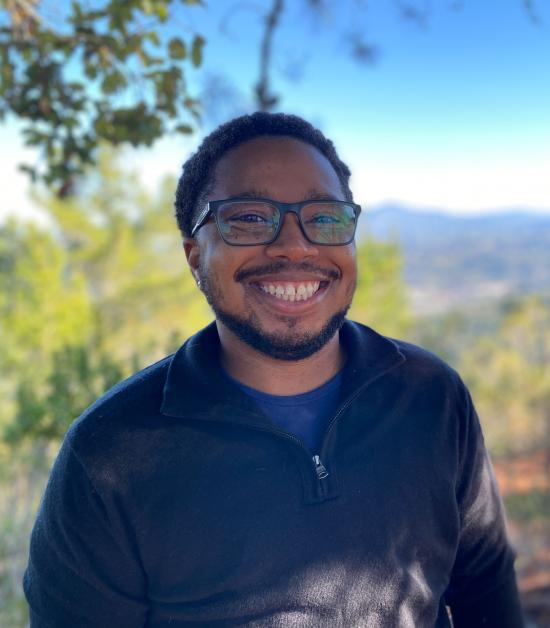Dean Rene is a first-year student in the MIMS program at the I School. Prior to Berkeley, he worked in the public and social sector directing student and family-focused programs, evaluation, and strategy. In Spring 2024, he will graduate with a Master of Information Management and Systems from the School of Information and a Master of Public Affairs from the Goldman School of Public Policy.
What is your favorite thing about the I School?
My favorite part about the I School is experiencing a consistent theme of ethics and values throughout the classes that I’ve had so far. It’s an active part of the curriculum and regularly connected to how we’re reflecting on our work, careers, and lives. I’ve grown to understand how the worldview and decisions of an information leader shape and impact the lives of others. It’s our responsibility to support the development of better digital experiences for everyone, especially by centering those among us that are in the most need.
What is an information or data science challenge that intrigues you?’
In policy, “wicked problems” (a policy and planning term coined by UC Berkeley professors Melvin Webber and Horst Rittel) are big problems that have incredibly difficult or seemingly impossible solutions. A challenge that interests me is how to use information/data research and models to solve democratic representation issues for politically and socially marginalized groups. In what ways can we test and challenge imbalanced voter representation models? Currently, it’s nearly impossible for marginalized groups to have the political power to self-govern themselves, their bodies, and their life outcomes. Can we uncover and evaluate political representation models that better or fully allow marginalized groups to no longer be a constant and convenient target for political exploitation?
What advice would you give an incoming or prospective MIMS student?
I have two pieces of advice:
- If you don’t have a technical background, that’s totally normal and okay. The program is built with all different experiences in mind. Although, I highly recommend taking the admission team’s advice of starting to study immediately. Parse out some time daily or weekly to get used to navigating within an environment and practicing with some basic coding/programming concepts. The fall term is very technical and requires a lot of focus and dedicated time. The amount you practice before you arrive (and not just reading about coding) will directly correlate to a more manageable experience in class. Every little bit will help.
- Once you get into graduate school, please take some time to celebrate yourself. Whether at Cal or another university, it’s an amazing accomplishment and deserves congratulations. When you accept, my advice would be to take off the stress and expectations that you’ve been holding for yourself. Graduate school is meant to be a joyful and meaningful experience. Grades are not as important as they were in your undergraduate program. If this is your last degree, I hope you make it the one you had the most fun and joy attaining.
You're the Diversity, Equity, Inclusion, Belonging, and Justice (DEIBJ) student representative for the MIMS program. Why were you compelled to serve in this role?
I was interested in becoming a DEIBJ Representative for the I School because equity and inclusion work is the foundation of every thriving community. I want to support our school community in maintaining equity and inclusion as a priority and to find ways to extend feelings of belonging and safety to all the ways our unique identities show up in our spaces.










